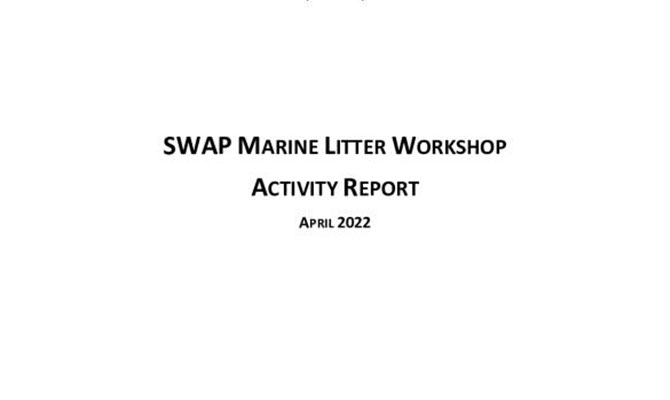
Tackling marine litter: from coastal clean-up to decision making
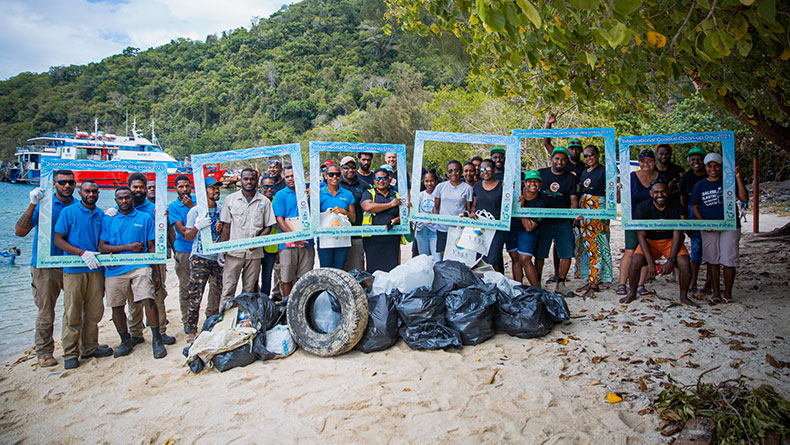
Pacific islands are particularly vulnerable to the impacts of marine litter, due to the particular value and sensitivity of their coastal environments.
To discuss this issue and the tools that can be used in the struggle against this marine litter problem (awareness, clean-ups, audits, etc.), the Secretariat of the Pacific Regional Environment Programme (SPREP), through the AFD-Funded SWAP (Committing to Sustainable Waste Actions in the Pacific) project hosted a two-hour virtual meeting in April 2022.
Plastics that are purposefully thrown from shore, from boats or are accidentally transported by winds or streams are a significant cause of marine pollution. Invasive species, contaminated wastewaters, industrial, agricultural, and household trash, as well as junk from ships also pollute ocean waters.
Globally, marine debris has a detrimental impact on the environment, people, and coastal economy. This issue is significantly worse for nations that depend on healthy ocean ecosystems and services, such as the Pacific region which is 98% covered by water.
Promoting cooperation among Pacific Island countries and territories to protect and improve their environment and ensure sustainable development is the main goal of SPREP, through all the projects and programmes it implements. Waste Management, including Marine Litter Management, is one of the SPREP’s priorities. To this end, The Committing to Sustainable Waste Actions in the Pacific (SWAP) Project conducted a two-hour virtual workshop on 6 April 2022 to talk about this problem and the resources that may be utilised to address it (awareness, clean-ups, audits, etc.).
Six expert speakers contributed to the discussion with their knowledge and skills in this area, including.
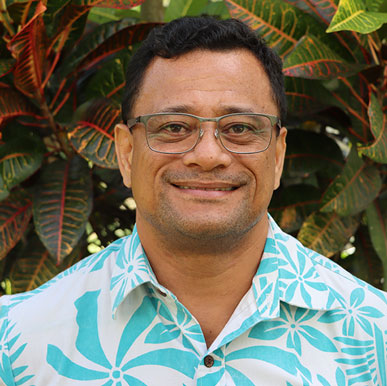
Mr. Anthony Talouli
SPREP Waste Management and Pollution Control Division, Director
Anthony Talouli is a Fijian national and has an engineering (Aerospace Engineer) background with 25 years of work experience in aviation and oil industry in the Pacific.
Anthony joined SPREP in 2007 as the Pollution Adviser. Now, as Director of the Waste Management and Pollution Control (WMPC) Division, he is in responsible of strategic programme leadership management and planning, programme performance monitoring and reporting, member and donor liaison, as well as project coordination, implementation and management.
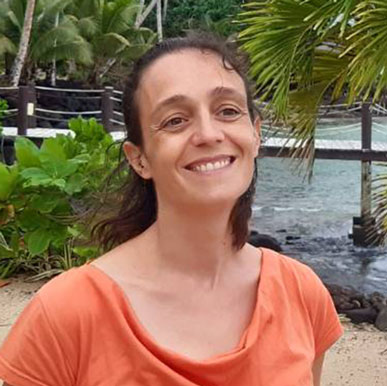
Ms. Julie Pillet
WMPC, SWAP Project Coordinator
Ms. Julie Pillet is a French civil engineer with over 13 years’ experience in the field of Waste Management.
She had been working for 12 years for a French Consulting Firm as a Project Manager. She conducted numerous studies for the design, development and implementation or rehabilitation of landfills, and waste collection and recovery facilities.
Since January 2021, Julie has been the Coordinator of the SWAP project funded by the Agence française de Développement (AFD), which focuses on the management of marine litter, disaster waste and used oil, as well as an overarching issue related to sustainable financing mechanisms.
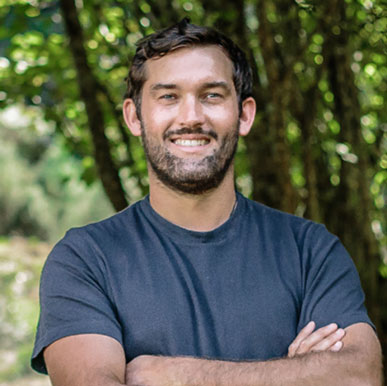
Mr. Camden Howitt
Co-Founder and former Programmes Director of Sustainable Coastlines
Camden Howitt is Co-Founder & former Programmes Director of New Zealand Charity Sustainable Coastlines, and a member of the Aotearoa Plastic Pollution Alliance.
A passionate advocate for our oceans and rivers, Camden combines over a decade of experience in strategy, community engagement and programme design with a drive for collaboration.
Howitt has worked on community environmental solutions around Aotearoa and the Pacific Islands, and spearheaded the Sustainable Coastlines' new program Litter Intelligence, combining citizen science with innovative technology to monitor, share data and prevent marine litter.
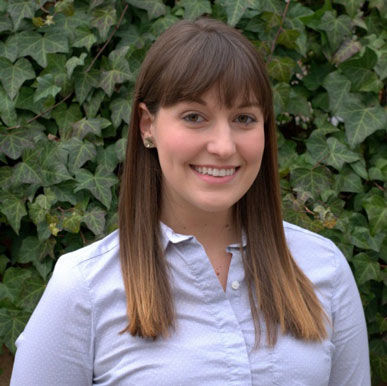
Ms. Sarah Kollar
Outreach Manager, International Coastal Cleanup (ICC)
Trash Free Seas® Program
Ocean Conservancy
Sarah Kollar serves as the Outreach Manager for the International Coastal Cleanup under Ocean Conservancy’s Trash Free Seas Program®. She enjoys working with a fantastic network of beach and waterway clean-up organizers worldwide, along with passionate educators and individuals who take action on the issue in their own communities.
She manages the creation and distribution of education and outreach materials for action-based solutions and maintains Ocean Conservancy’s data collection tools including the Clean Swell app and online ocean trash database.
She holds a Bachelor’s degree in Biology and Environmental Studies from Eckerd College and has been with Ocean Conservancy for eight years. She’s had the pleasure of representing the Trash Free Seas Program® at a number of local, state and national marine debris meetings and conferences.
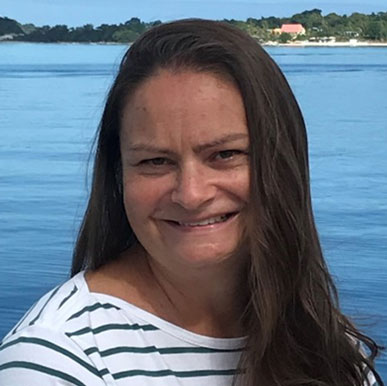
Ms. Christina Shaw
CEO of The Vanuatu Environmental Science Society
Christina Shaw, originally a veterinary surgeon from England, has lived in Vanuatu for the last 13 years. In 2014 she started a conservation organisation The Vanuatu Environmental Science Society after completing a masters in Veterinary Conservation medicine from Murdoch University, Australia.
VESS’s main focus is on protecting Vanuatu’s threatened and endemic species such as Vanuatu’s flying foxes and dugongs as well as protecting important ecosystems. Christina and her husband are partners in the scuba diving business Big Blue Vanuatu. Through diving, Christina encountered firsthand, the plastic pollution problem affecting coral reefs and other marine fauna. Both VESS and Big Blue have been raising awareness about the problem of plastics in our oceans and have conducted clean-ups in the water and on the land for many years.
The data from our clean-ups has been used to support the single-use-plastic bans that have recently come into force in Vanuatu.
SWAP coordinator, Ms Julie Pillet, began the workshop with an overview of the current state of marine litter in the world, based on data from the United Nations. Plastic products make up most of the marine litter, as the main elements of marine debris come from the human living environment entering the oceans. In addition, the recent COVID-19 has raised concerns about further plastic waste discarding on the environment. Ms Pillet also pointed out the need to take action as soon as possible, as such marine litter has an impact on the marine ecosystem, climate, economy and human health.
Co-founder and former programme director of Sustainable Coastlines, Mr. Camden Howitt highlighted the need for data collection by citizens based on his programme experience.
“We enable communities to collect data so really rigorous citizen science collects data that is long term to understand the problem to gain insights both through their experiences in nature and through the technology that we’ve developed to gain access to the data to look at comparisons and look at long term trends and then finally taking action.”
Ms Sarah Kollar, Outreach Manager, International Coastal Clean-up (ICC) / Trash Free Seas®Program Ocean Conservancy, supported the importance of collecting data on marine litter and shared her experience with clean-up campaigns over the past decades to demonstrate how this data can influence local and national policies toward marine litter.
Chief Executive Officer of the Vanuatu Environmental Science Society (VESS), Ms Christina Shaw, added that they “didn't have huge amounts of data from small clean-ups but that’s enough to actually be able to influence the policy and the effect of the bands.”
In other words, data collection can be a very effective means of obtaining the necessary legal and financial support to sustainably tackle marine litter issues. Additionally, as the marine litter problem is an international issue, it is important to make the data clearer and to help increase awareness of the issue.
The workshop session also covered another important lesson: community participation. Wallis and Futuna's experience shows that in small island nations, it is not about the scope of the clean-up, but rather about the people.
The International Coastal Clean-up Day is the world's largest beach and overseas line clean-up campaign, which has been taking place on the third Saturday of September every year since 1986. In the 35 years, the clean-up has grown significantly since the first clean-up. Each year, volunteers from states and regions across the US and more than 150 countries come together to take part in clean-ups in places close to home.
These Clean-Up programmes also benefit greatly from financial and logistical support from regional or global initiatives such as SWAP and the national or municipal governments. As such, the SWAP and other projects implemented by the Secretariat of the Pacific Regional Environment Programme, including the Pacific Ocean Litter Project and the GEF ISLANDS Project sponsored almost 60 Pacific communities to carry out costal clean-ups and awareness-raising activities, as part of the International Coastal Clean-up Day.
Note: This story has been developed with the support of the University of Newcastle (Australia) as part of a partnership between SWAP and the University through Work Integrated Learning. As such, the SWAP coordinator acknowledges all the students involved in this collaboration, including Mr. Kaito Nagata and Mr. Chris Johnson for this article.
